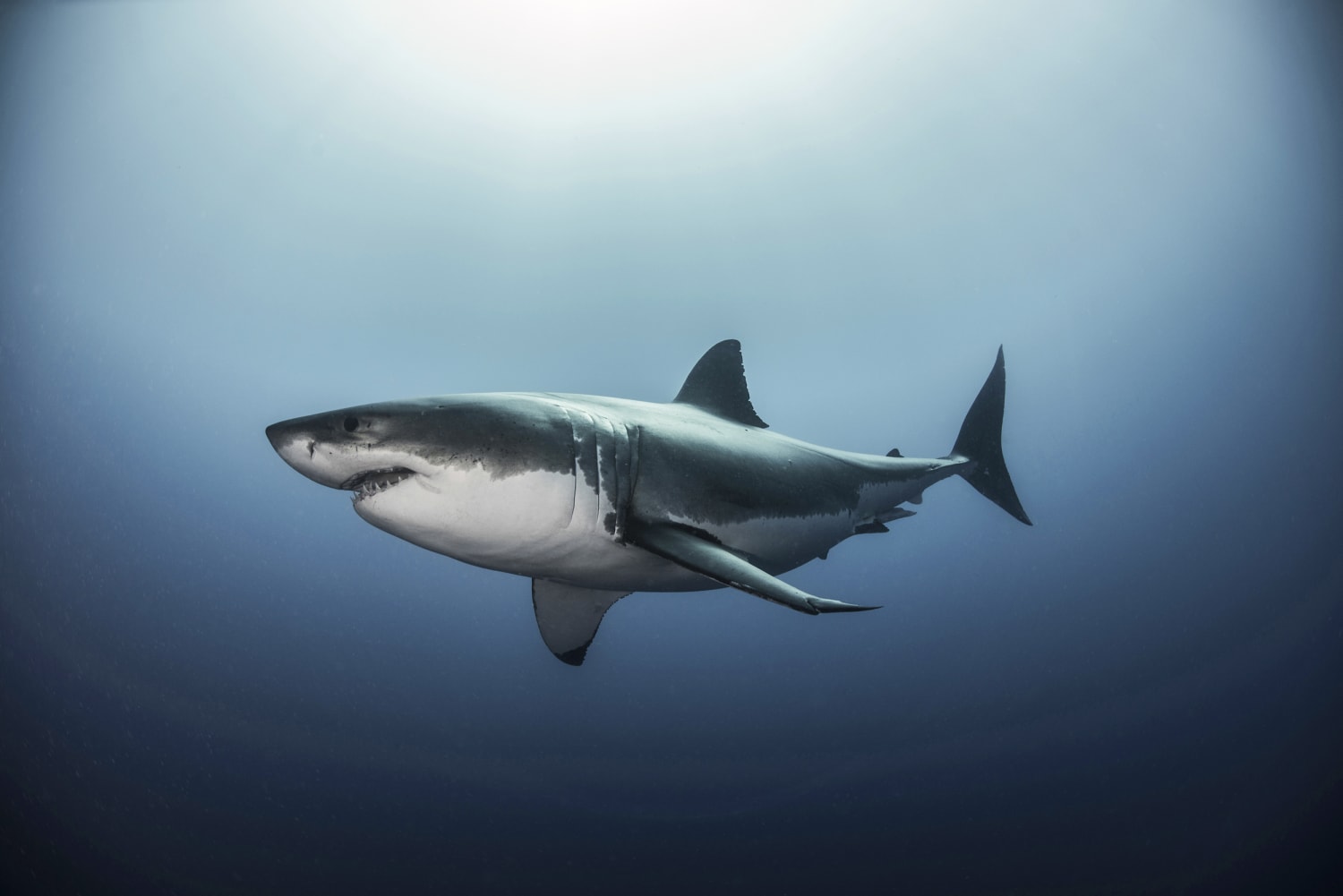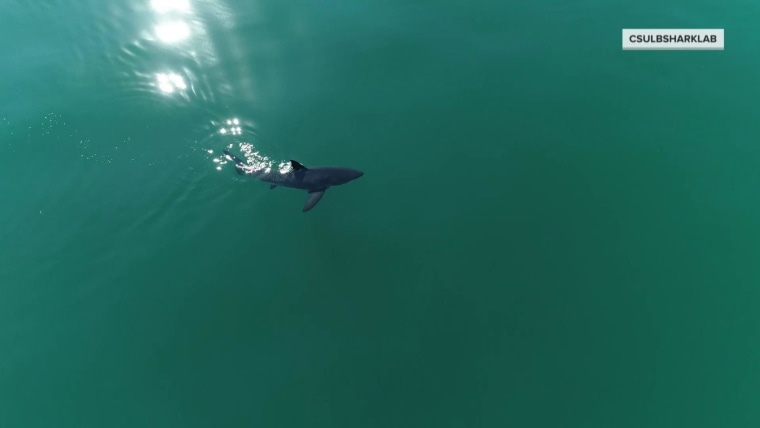Unprovoked shark attacks against humans are rare and generally unpredictable, but a new study suggests it may be likelier under a full moon.
Researchers at the University of Florida and Louisiana State University say their study is the first to show any statistical correlation between historic shark attack data and a natural phenomenon — and might guide future research into when and why sharks attack people.
Comparing moon cycle and shark attack data, the study suggests “fewer shark attacks than expected only occurred at lower values of lunar illumination while more shark attacks than expected only occurred at higher values of lunar illumination.”
But study authors Lindsay A. French, Stephen R. Midway, David. H Evans and George H. Burgess cautioned in the journal Frontiers of Marine Science that their analysis did not have enough historic shark attack data to draw major analytical conclusions.
The researchers acknowledged that the limited 1970-2016 date range for data in the International Shark Attack File does not contain records of every attack.
The study does not suggest sharks are guided by moonlight toward humans, because the vast majority of shark attacks happen in broad daylight. And the study does not suggest any causal relationship for this correlation, but rather suggests two possible contributing factors: electromagnetic fields influenced by the moon’s phase and tides.
The study doesn’t say that it recommends using full moons to determine shark attack risk at this point, saying local variables “are expected to continue to be more practical information for assessing risk.”
“However, the results here strongly support the idea that moon phase does play a role in overall risk of shark attack, and if future studies are able to consider local and regional environmental conditions along with lunar illumination, both understating shark attacks and forecasting risk may improve.”
The International Shark Attack File reported 129 total shark attacks in 2020 — 57 of which were unprovoked. Its report on 2021 will be released Jan. 24.
The 2020 report found that unprovoked shark attacks rose in the U.S. while falling everywhere else. Fewer than ten shark attacks per year are usually fatal, researchers said.
In 2021, a California surfer and crabber survived bites from what were believed to be great white sharks, while fatal attacks at popular Australian beaches occurred over the past several years.
Source: | This article originally belongs to Nbcnews.com











